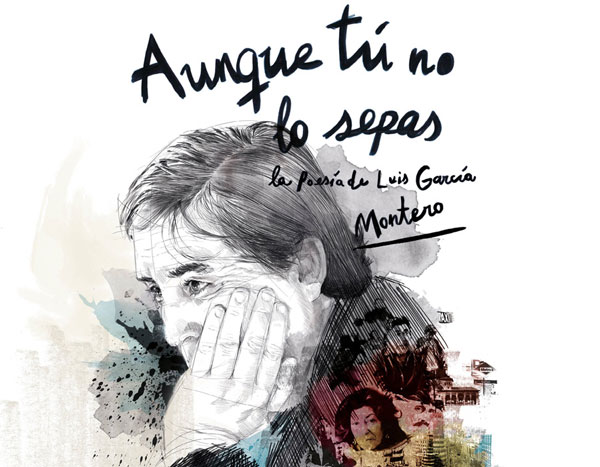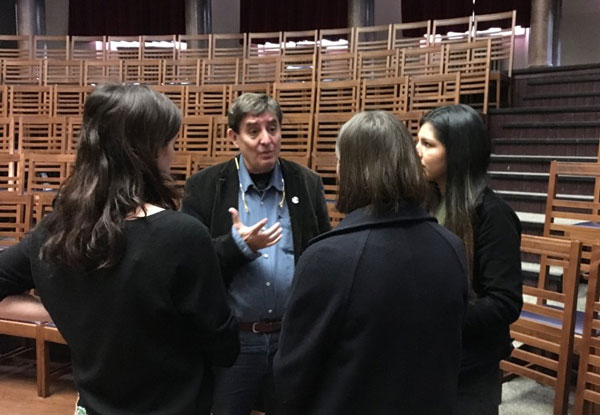"I ask my dreams to come back home" - Spanish poet, Luis Garcia Montero
Posted on: 7 March 2017 by Lisa Jones in 2017 posts

How does a poet produce their work and how does their poetry fit into the lives of the public? Our Hispanic Studies students got under the skin of acclaimed Spanish poet, Luis García Montero, during his recent visit to Liverpool.
Your poetry has been awarded a great number of prizes, such as the 'Premio Poetas del Mundo Latino' in 2010. Are there enough literary prizes for poetry?
I will be honest with you. I believe a poet needs to be grateful for any award received. When a panel awards you a poetry prize you say a massive thank you. A poet is an ordinary individual. If someone has a go at you and calls you dim-witted you will obviously be a bit upset; and if someone gives you an award you will be happy. Nevertheless, poetry awards do not make you a better poet. And honestly, the greatest award a poet can ever receive is its readers.
I am so touched when someone tells me they popped the question reading one of my poems to their partner, or when someone tells me that during the funeral of one of their parents they read one of my poems because poetry was the only thing that offered them any comfort or solace. Being part of people’s sentimental education is the real award, because it takes you back to yourself.
I am a poet because authors like Pablo Neruda, Jaime Gil de Biedma, García Lorca, César Vallejo, Rosalía de Castro and Alejandra Pizarnik and so many other great poets are part of my sentimental education. So when I realise I have become part of someone else’s sentimental education I feel I have just been awarded the greatest poetic prize of all.

Is there any text that marks a turning point for you? Why?
Maybe the book in which I begin to really find myself is the one called Habitaciones separadas, which I published in 1994. In that book I think I finally manage to convey –thanks to all I had previously learnt– what is my true poetic voice or expression. And I would define it as a melancholic optimism. Habitaciones separadas tells the reader about a crisis in which I chase out from home all my dreams. I am fed up. My dreams have totally failed, they are filled with blood, defeat, and I just kick them out.
But then, with no dreams left, I become a cynic. I don’t care about anything, everything is relative, nothing matters, we cannot change anything, I have no responsibilities. Then I end up asking my dreams to come back home.
I tell them to move in with me again, although we will inhabit separate rooms. This way, whenever I am very very very naïve, and whenever I believe dreams are completely sincere and real, they will shout at me from the ‘Realism room’.
And whenever I act cynically and I believe nothing can be done, I will be shouted at from the ‘Dreams room’ not to become a cynic. And that dialogue between optimism and melancholy is the dialogue in which I can see myself. And that is something that maybe I started to achieve in 1994 with Habitaciones separadas.
Keywords: hispanic studies, languages, spanish, careers, student experience, liverpool.